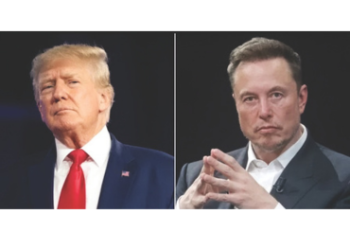July 30, 2024. Andreja Stojanovic.
At the start of 2024, the term ‘EV winter ‘ – referring to the slowdown faced by the electric vehicle (EV) industry – started getting popularized. Perhaps the most shocking report showing the state of the sector was that Tesla Motors (NASDAQ: TSLA) sold only a single car in South Korea in January of the year. Despite such a reduction in demand, Finbold’s research found that the competition within the industry has only been growing stiffer as Tesla has steadily been losing ground in terms of market share in recent years.
Indeed, once a dominant company and a near monopoly in the US, Elon Musk’s EV maker saw its command of the market drop 33 percent since the first quarter (Q1) of 2022, and, by the second quarter (Q2) of 2024, it fell below 50 to 49.7 percent.
Tesla has been losing 2.79 percent market share per quarter in US
The trend of other car manufacturers eating into Tesla’s dominance of the EV market in the US has been observable in most of the quarters between the start of 2022 and the mid-point of 2024. The biggest single quarter loss of market share for Elon Musk’s EV company came between Q2 and Q3 2023, when it lost 9.3 percent. On the other hand, the largest gainer in the time frame has been the traditional American automotive giant General Motors (NYSE: GM), which started 2022 with a presence of just 0.3 percent but rose to 6.6 percent by the middle of 2024. Elsewhere, Hyundai (KRX: 005380) – if accounted for together
with its subsidiary Kia – commands the second biggest portion of the EV market share in 2024 at 11.2 percent. Still, it wasn’t only Tesla that struggled to maintain its command of the market. Among the top five biggest players in the industry, Ford (NYSE: F), BMW (ETR: BMW), and Hyundai are all below the peaks they reached in particular quarters since early 2022.
Other EV makers fail to captivate customers in the US
Simultaneously, despite the enthusiasm most of them garnered upon their initial public offerings (IPOs), other manufacturers focused primarily on electric vehicles are significantly behind both Tesla and the bigger legacy companies.
In fact, neither Lucid Group (NASDAQ: LCID) nor Rivian (NASDAQ: RIVN) made the list of the top five EV makers by market share since Q1 2022. By Q2 2024, the former boasted approximately 0.6 percent and the latter 4.2 percent.
Global EV demand on the rise despite shifting market dynamics
While the figures resulting from Finbold’s research may intuit a dire situation for Tesla and the whole of the EV industry, it is worth pointing out that the sector has been growing if the 2024 slowdown is ignored – and even once it is accounted for, EV sales have more stagnated than truly declined, particularly with the most recent recovery.
Indeed, the sector’s steady rise is well- reflected in the figures for EV-driven electricity demand. Not only did it rise significantly in the last ten years, but it is expected to rocket by another 630 percent by 2030.
Nonetheless, the trend of increasing competition displacing Tesla as the biggest player in the industry is evident across the globe. According to data provided by the International Energy Agency (IEA), Elon Musk’s EV maker commanded 13 percent of the global market at the end of 2023 – noticeably below its 16 percent peak in 2019.
Chinese EV makers increase their Dominance
Simultaneously, Chinese EV companies have been on the ascendancy, with BYD overtaking Tesla in 2022 with a market share of 21 percent by the end of last year.
The same trend is observable when other major carmakers are compared with other Chinese electric vehicle firms. While both groups lost some market share in 2023, companies from the People’s Republic are slightly above at 32 percent compared to other relevant firms which stand at 30 percent.
Andreja is a skilled finance news reporter, copywriter, and screenwriter with a growing fascination for finance, especially in the wake of the retail investing boom. He has since committed himself to providing rigorous coverage of financial news and the exploration of intricate financial concepts.





